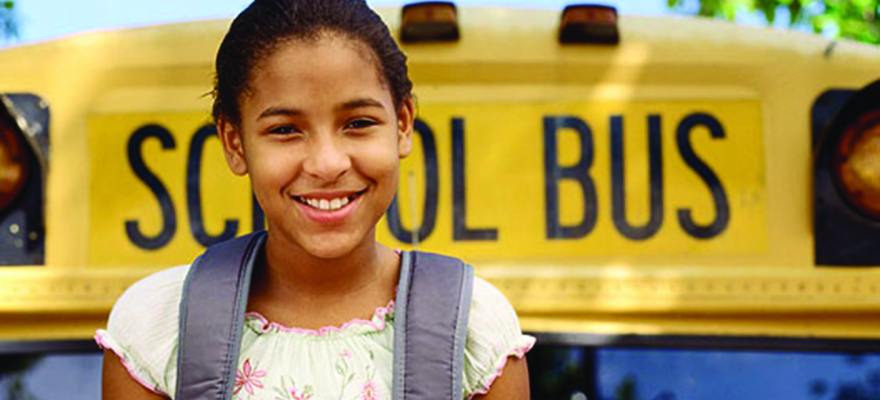
The school year is coming. Here’s your back-to-school readiness checklist.
Prepare
Your child likely needs more than a new backpack and lunchbox for the first day. Purchase bento boxes, reusable water bottles, small ice packs, thermoses, pocket tissues, etc.
Stock up on breakfast and lunch supplies. If possible, plan your menus in advance to cut down on time during the week.
Review schoolwork from the previous year. If it seems like your child needs to brush up on any subjects, and after two months off school he or she surely might, put in some extra study time before the first day.
Prepare homework space. Buy new home supplies and organize the area where your child will be spending time completing assignments after school.
Medical
Make sure all medical checkups are up-to-date, including pediatrician, dentist, and optometrist.
Routines
Practice the new bedtime routine and morning routine a week or so before school starts.
Mary Miele, learning and education specialist, and CEO of Evolved Education Company, suggests creating pictures of tasks to do in the morning and night.
“Print them out and put them on the table. As your child completes them, turn the picture over,” she explained. “Older students can write tasks on note cards and do the same thing.”
Christine Hernandez, certified doula, early childhood and parenting expert, and founder of Allo Saratoga, recommends adjusting your child’s sleep schedule long before the night before the first day of school.
“We all know that summertime can bring a lot of fun and late nights catching fireflies, but as we gradually head back to the routine of fall, it’s really important to slowly–that’s the key–adjust your child’s sleep schedule back to the school-year time and routine,” she said. “By gradually adjusting their sleep schedule back to a regular routine before school starts, you help them ease into the new academic year with less stress and fatigue. This transition allows them to be well-rested, alert, and ready to engage in school activities from the very beginning. Simply adjust their bedtime by a few minutes every night, starting a few weeks before school begins, and it won’t be such a fight the night before school begins.”
Set up a family calendar. This is a great way to prepare for what’s coming up and get everyone excited about the school year ahead.
“I recommend setting up a family calendar to organize everyone’s schedules, including school activities, extracurriculars, and important dates,” Hernandez explained. “Having a visual representation of the weekly routine helps everyone stay on track and manage time effectively. We all know those first few weeks back to school are chaotic, so set everyone up for success with a family calendar.”
As the first day approaches, limit time spent on electronic devices and increase daily reading time.
Also, Miele said for students who have phones, text them a note with their morning, evening and weekly afterschool activity routines for easy reference. Be sure to include daily and weekly chores as doing chores is an excellent way to prepare children for adult life and build executive functioning.
Brainstorm some new ways to ask “how was your day” when kids get home from school. Asking more specific questions will help you understand how well your child is doing in a new class, new school, with new teachers, etc.
Re-establish meal times that match school hours. This includes breakfast, lunch and dinner times.
“Having regular meal times helps regulate energy levels and prepares the body for the school day,” Hernandez said. “It will help prepare everyone for the upcoming year, so start establishing these meal times a few weeks before school begins to gradually get back into the routine.”
Safety
Review safety procedures for walking to school or getting on and off the school bus.
If your child is attending a new school, do a practice run to familiarize him or her with the new surroundings.
First Day
Prepare the night before. Set the breakfast table, pack lunches, lay out clothes, organize supplies and fill book bags.
Make a list. Memorize new class numbers and teachers’ names.
Double, triple, and quadruple check your supply list. Make sure you have everything your child will need for the first day.
Summer homework check-in. Make sure all summer homework assignments have been completed.
For younger children or those with first day jitters, read a book together the night before about starting school. Popular titles include: Wemberly Worried by Kevin Henkes; The Kissing Hand by Audrey Penn; We Don’t Eat Our Classmates by Ryan T. Higgins; and Llama Llama Misses Mama by Anna Dewdney.
Academics
Stock up on books. Once the school year starts, provide access to books and make time for reading, Miele said.
“Even 20 minutes on weekend days will help,” she said.
Talk about news articles with your children. Miele recommends Newsela as a great resource. Also, preview math courses and skills.
For older students, meet with your child and create an approach for studying, doing homework and scheduling that everyone agrees with.
“Be sure that when you create a system, you all follow it with fidelity. Keep in mind that many middle and high school students need time on the weekends to do homework and study,” Miele said. “Create a family plan for this before school begins with clearly outlined expectations that everyone can agree upon. Discuss and clarify phone and video game time limitations and discuss any concerns.”
Pssst… Check out 7 Tips For Preparing Healthy School Lunches





